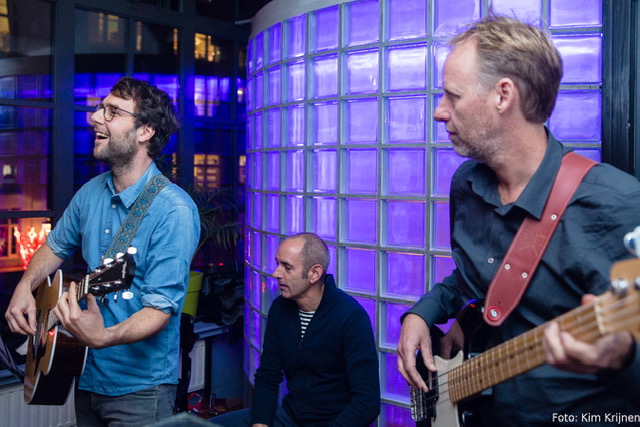
Empower democracy!
Together with political scientist Léonie de Jonge and blogger and activist Thomas Laschyk, we will talk about the urgent and thorny questions of how to deal with the far right in the Netherlands and Germany. What are the threats and risks to democracy, and what can we do to protect our democratic institutions and values? And what can the Netherlands and Germany learn from each other?
Slowly but surely, the far right is coming to power in many European countries. The Netherlands is no exception: as the big winner of the Tweede Kamer elections, the radical right-wing party PVV is part of the government now. Meanwhile in Germany, the partially extremist Alternative für Deutschland (AfD) is on the rise. This deeply worrisome trend challenges our liberal democracies. How can we push back the wave of right-wing extremism and defend democracy?
At first glance, the success of the PVV in the Tweede Kamer elections came as a surprise. But it was in the making for a long time as many citizens, the media and politicians have gradually accepted the radical right-wing party as a legitimate player in political The Hague. In the end, his victory could almost be presented as normal: democratic business as usual. How and where is the new government putting strains on the Dutch democracy?
In Germany, the concept of a “resilient democracy” (also called “militant democracy”) has a long tradition with the National Socialist dictatorship as its central reference point. State and society are called upon to do everything in their power to defend the institutions and values of liberal democracy against all totalitarian challenges. Recently, this concept is widely discussed again because Germany is facing a strong pull to the right. The electoral win of AfD in the state elections in East Germany in September has shocked many, and for the first time since World War II, a radical right-wing party has won a German election. Unlike in the case of the PVV, in Germany there are no parties who are willing to cooperate with the AfD as they uphold a so-called Brandmauer or cordon sanitaire against the right — But it is unclear to what extent they will be able to maintain this principle.
With the speakers we will discuss how to explore institutions and values against the rise of the far right in conversation, while the Dutch-German band Deuba will explore the topic with a special selection of German protest songs.
This programme is part of DIA’s New Thinkers Series Sturm und Drang and the series Mauerfall. Wat blijft?
About the speakers
Léonie de Jonge is Assistant Professor in European Politics and Society at the University of Groningen. She holds a PhD in Politics and International Studies from the University of Cambridge, UK (2019). Her research has been published in different journals, including the International Journal of Press/Politics and Government & Opposition. She is also a researcher at the Dutch Political Parties Documentation Centre (DNPP). As a political scientist, she studies the rise and normalisation of the radical and extreme right. She is interested in why right-wing populist parties are more successful in some countries and regions than in others.
Thomas Laschyk is a blogger and activist against disinformation. He studied International Literatures at the University of Augsburg and wrote his master’s thesis on storytelling in social media fake news. He is co-founder, managing editor and managing director of the popular and award-winning blog “Volksverpetzer”. The Anti-Fake News-Blog reveals the strategies of extremists and conspiracy theorists and exposes their disinformation campaigns, sometimes with a needed hint of humor, but always fact-based. In his first book Werbung für die Wahrheit (Advertising for the truth, 2024), Laschyk explains why people really fall for fake news and why so much educational work is ineffective. He describes what is going wrong in the German media landscape and also takes stock of the responsibility of some traditional media organisations in the fight against disinformation.
Wiebke Pittlik is the editor-in-chief of Duitslandweb, the independent journalistic platform of the Duitsland Instituut. She writes about current political, economic and social developments in Germany.
Mario Daniels (moderator) is the DAAD-Fachlektor of Duitsland Instituut Amsterdam. He is a historian of the international history of science and technology. He received his PhD from the University of Tübingen, taught at the Universities of Tübingen and Hannover and was twice a research fellow at the German Historical Institute in Washington, D.C. From 2015 to 2020 he was DAAD Visiting Professor at the BMW Center for German and European Studies at Georgetown University.
About the band
No schlagers, no Nena, and no Kraftwerk either – but rather: the very best of German rock music from the 1980s to the present. That’s what Deuba, the only real German band of the Netherlands is playing. From folk to punk, from blues to indie, with Deuba you’ll hear the Deutschrock you’ve been missing for years.
© Kim Krijnen

:rgb(-15)

:rgb(-25)

:rgb(8)
